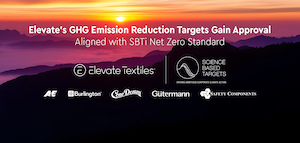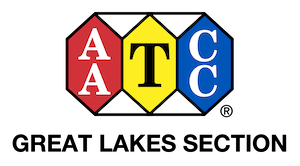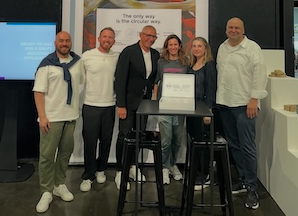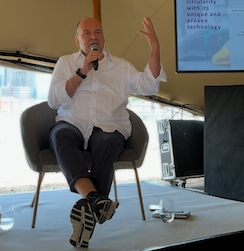 POMONA, Calif. — June 26, 2025 — Cindy Cordoba, an apparel and merchandising management assistant professor at Cal Poly Pomona, will blend her expertise in functional apparel design, sustainability and textile waste management with her advocacy for agricultural workers, thanks to a $398,926 state grant that will fund the co-design, production and distribution of the first 100 HeatShield garments to agricultural workers in Southern California. The garments are intended to protect a workforce that faces unique occupational health risks — they are 35 times more likely to die from heat exposure than workers in other industries.
POMONA, Calif. — June 26, 2025 — Cindy Cordoba, an apparel and merchandising management assistant professor at Cal Poly Pomona, will blend her expertise in functional apparel design, sustainability and textile waste management with her advocacy for agricultural workers, thanks to a $398,926 state grant that will fund the co-design, production and distribution of the first 100 HeatShield garments to agricultural workers in Southern California. The garments are intended to protect a workforce that faces unique occupational health risks — they are 35 times more likely to die from heat exposure than workers in other industries.
The grant was awarded from the Extreme Heat and Community Resilience Program (EHCRP), as a part of the Governor’s Office of Land Use and Climate Innovation. Farmworkers — the recipients of the HeatShield garments — will be involved in every stage of the design process, from initial ideation to field trials, including the selection of fabrics and key functional creatures. The project began on May 30 and is expected to conclude in December 2027.
“According to a 2021 research study, extreme heat exposure for outdoor workers could triple by mid-century, putting $39.3 billion in annual earnings at risk,” Cordoba said. “These facts, along with what I’ve seen and learned from workers firsthand, have motivated me to pursue a solution that is both equitable and sustainable. I believe that through circular, user-centered design, we can create protective clothing that addresses the realities of climate vulnerability and uplifts those who are too often left out of the conversation.”
Cordoba, alongside her co-principal investor Dr. Helen Trejo and Cal Poly Pomona students, will interview farmworkers in Spanish and English, use 3D software with heat mapping, run textile laboratory testing, and analyze the data they collect. Together they will develop educational materials, conduct outreach, workshops and events in bilingual formats. The garment blueprint specifications will be publicly accessible, allowing other organizations to reproduce garments at scale and sustainably.
Cordoba hopes to democratize access to specialized workwear addressing worker well-being and long-term environmental sustainability: “The design process moves away from fast fashion models by focusing on durability, ease of disassembly, and responsible material choices, all of which help extend the garment’s lifecycle and reduce post-consumer waste.”
A native of Colombia, Cordoba grew up in Antioquia, home to the country’s largest agriculture sector, and where she cultivated her professional experience by working with rural communities to develop renewable energy systems using agricultural waste. That, and witnessing her colleagues at the Huntley College of Agriculture grapple with the growing challenge of working in extreme heat, informed her drive to protect agricultural workers.
“I saw a unique opportunity to design solutions for a vulnerable yet vital workforce – one that supports California’s food systems and economy.”
Posted: June 30, 2025
Source: Cal Poly Pomona


















